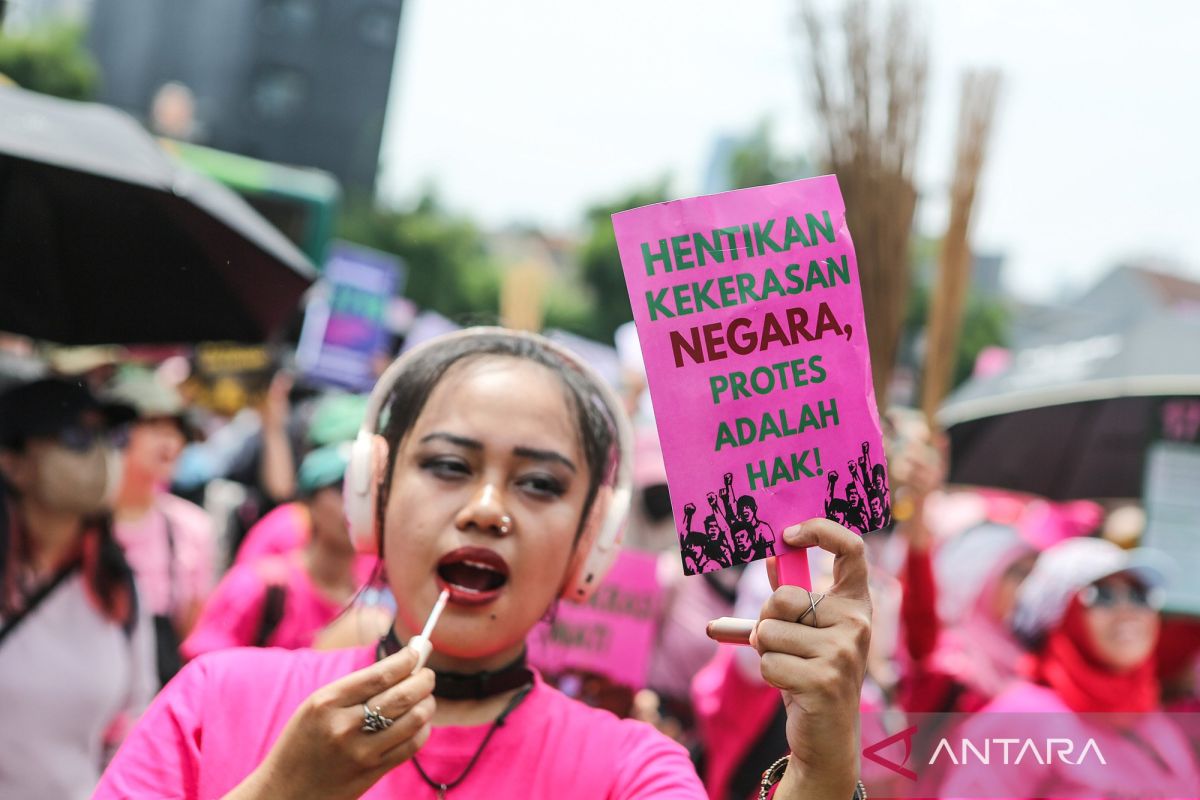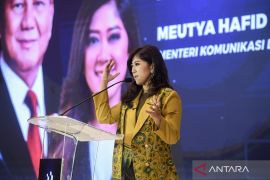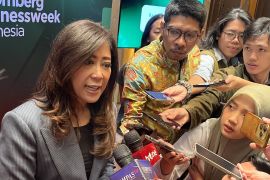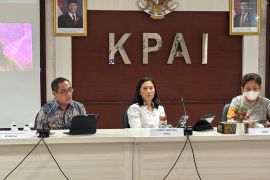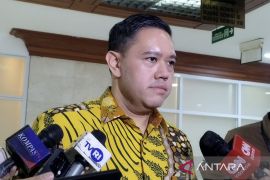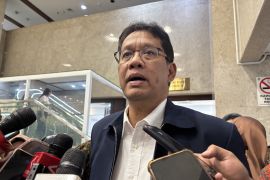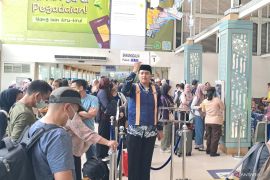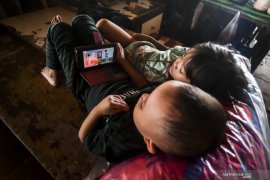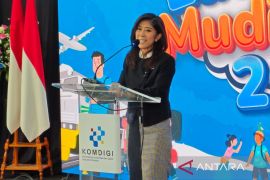Recently, Indonesia’s digital space has been awash with two dominant color themes: brave pink and heroic green.
These hues have appeared across social media platforms, featured in everything from profile pictures to striking digital artwork.
More than a visual trend, pink and green have become symbols of collective tribute—honoring two individuals whose names resonated deeply on August 28.
Brave pink represents ibu Ana, a woman in a soft pink hijab who stood firm and unflinching before riot shields during a tense, overcast afternoon.
Heroic green commemorates the late Affan Kurniawan, an online motorcycle taxi driver who tragically lost his life after being struck by a tactical vehicle during a chaotic night protest. He was simply trying to earn a living amid the unrest.
Together, brave pink and hero green offer a sense of calm in uncertain times. These colors have inspired hope, unity, and resilience across diverse communities—from artists and office workers to laborers and media professionals.
Ana and Kurniawan have become powerful symbols, quietly channeling public aspirations toward the government—aspirations that continue to be voiced with persistence and clarity.
Color, deeply tied to emotional interpretation, plays a vital role in what is known as color psychology.
Color can convey messages without words and shape how audiences interpret and respond to those messages. When shared meanings and emotions are involved, color can move people to action.
Brave pink now stands for inclusive courage and empathy. Heroic green symbolizes solidarity.
Through the reach of technology, countless individuals—both in Indonesia and abroad—have extended donations and support, helping those still struggling on the ground.
A Channel for Aspirations
The pink-green palette has been widely adopted by creatives and influencers as a way to express public aspirations through their content.
Among the most shared is the “17+8 People’s Demands,” a call for transparency, reform, and empathy.
Key demands include political party restructuring, stronger executive oversight, fairer tax reform, police professionalism rooted in humanism, and a comprehensive review of economic and labor policies.
These voices have been echoed by academics and economists. Three major Indonesian think tanks—CORE Indonesia, INDEF, and The Prakarsa—have emphasized the importance of government accountability and transparency in rebuilding public policy.
Executive Director of CORE Indonesia, Mohammad Faisal, speaking on behalf of the three institutions, stressed that socio-economic stability can only be achieved through responsive and just fiscal policies.
“The government must realize that investing in public welfare—not in coercive institutions—is key to sustainable economic growth,” Faisal said.
He added that bold leadership is needed to shift budget priorities from coercion to productive, long-term investments. Only through a foundation of economic justice, he argued, can Indonesia fulfill its vision of shared prosperity—the true essence of a republic.
Executive Director of CELIOS, Bhima Yudhistira Adhinegara, also called for concrete and careful steps to restore public and investor confidence. He proposed forming an independent team to accommodate public demands, which he emphasized are closely tied to economic challenges.
A New Meaning of Patriotism
Some say we must never tire of loving Indonesia, even in times of turmoil. But what if these voices and creative expressions are, in fact, a new form of love?
It is time for policymakers to listen and involve the public in rebuilding the trust that has gradually eroded.
As noted by the World Economic Forum, trust is essential for a nation to build the credibility needed to influence economic incentives, business decisions, and social behavior.
Trust and ethics are foundational to any form of economic cooperation. Governments, too, need the trust and support of their citizens.
Trust fuels economic growth. It can be fostered through international trade, financial development, and confidence in markets and institutions.
It also drives innovation, entrepreneurship, job creation, and productivity—all key pillars of national progress.
The National Commission on Violence Against Women (Komnas Perempuan) has voiced support for the wave of social media users changing their profile pictures to pink, in solidarity with women’s activism in the digital space.
“There’s nothing wrong with people using pink attributes to support friends participating in peaceful actions,” said Komnas Perempuan Chairperson Maria Ulfah Anshor during a press conference on Tuesday, September 2.
She emphasized that the movement deserves support, as it seeks not to provoke, but to invite peaceful expression of opinion.
Ultimately, evidence-based and empathetic policies begin with the willingness to listen—not with dismissing voices as signs of disloyalty.
Those who speak through brave pink and hero green will continue working together to rebuild the nation—because true love is born not of fear, but of unity.
Editor: Aditya Eko Sigit Wicaksono
Copyright © ANTARA 2025
